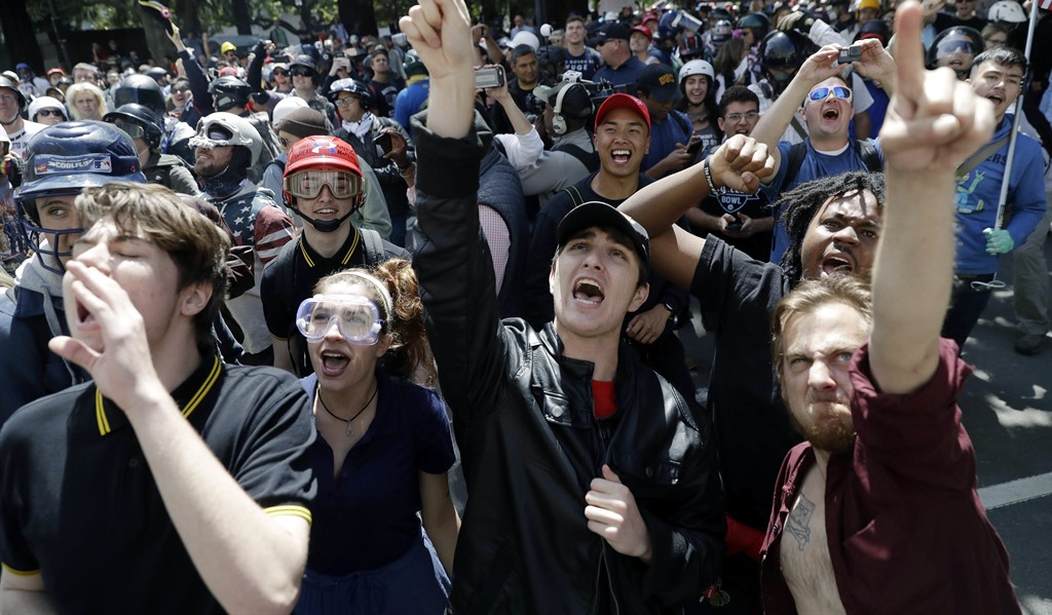The Wisconsin Assembly recently approved a bill designed to protect free speech on campus. From the Journal-Sentinel:
Tensions have mounted in recent months between liberal campuses and conservative speakers. At the University of Wisconsin-Madison in November, conservative speaker and former Breitbart editor Ben Shapiro gave a speech to a conservative student organization and was interrupted by liberal activists.
Shapiro had to stop his speech for seven minutes while protesters chanted and yelled.
Kremer’s bill, co-sponsored by Assembly Speaker Robin Vos (R-Rochester), is aimed at ensuring that violent protests, like those seen at University of California-Berkeley, don’t occur in Wisconsin. He said the bill would not affect classroom discussions but would give Wisconsin the strongest measure in the country to prevent disruptions of free speech.
Inside Higher Ed published an opinion piece today by an assistant college professor in Wisconsin who took issue with the bill but also with the idea of free speech on campus more generally:
It is clear that lawmakers in Wisconsin and elsewhere are attempting to achieve politically neutral college campuses in the name of “protecting” free speech — campuses where all speech is considered equally valuable, no matter how morally repugnant, intellectually empty and psychologically dangerous…
There is no such thing as a politically neutral campus. No speech is neutral, no message free of ideology and power relations. To speak at a college campus or educational institution is to encourage thought in one direction or another…
Make absolutely no mistake: to claim neutrality is a political act; to develop and enforce laws in pursuit of the myth of neutrality is a political act; to illegalize protest is a political act. To silence opposition is a political act. To support campus speech while railing against tenure protections is a political act and also a blatant exercise in hypocrisy.
I am not sure that it’s “free speech” proponents of Assembly Bill 299 purport to want to protect as much as they wish to support perspectives that have only ever advantaged them and the bill’s beneficiaries at the expense of social progress. Rather than hide behind a thinly veiled commitment to free speech, they might ask themselves: Which speech do I want protected on college campuses, and at whose expense? Whose speech do I want protected, and at what social cost?
I’m leaving out a lot of the author’s argument (click the link to read the whole thing) but I think these are some of the highlights. Right from the start, the author assumes the goal of the bill is to create neutrality. She goes on to say that neutrality is a “myth” and that what this is really doing is silencing political opposition.
I don’t think any of these points are correct. As you can see from the Journal-Sentinel article above, the specific context here is recent attempts by the far-left to shout down conservative campus speakers. We’ve all seen examples of this over the past year at Middlebury, Claremont McKenna, Berkeley, etc. The Wisconsin bill is aimed at preventing that behavior by creating a punishment for those who use the heckler’s veto to threaten and silence their opponents.
It’s always possible that the mechanics of the bill could be used unfairly, i.e. false reports could be made against people, but at least in concept, this bill doesn’t prevent anyone from protesting, marching or speaking out against a campus speaker they disagree with. It only prevents them from shouting them down.
The author suggests that all of this talk about freedom of speech is just an effort to dress up baser motives about securing political advantage. But it’s conservatives who are clearly disadvantaged in their ability to exercise their rights on campus. Rejecting this bill can be seen as an attempt by the author to maintain an (unfair) advantage her side of the aisle has in appealing to the next generation.
The author wants us to weigh the social costs of free speech but doesn’t seem to assign any cost to having (someone else’s) right to speak denied entirely.








Join the conversation as a VIP Member